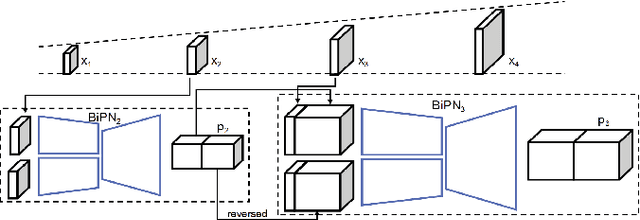Long-Term Video Interpolation with Bidirectional Predictive Network
Paper and Code
Jun 13, 2017



This paper considers the challenging task of long-term video interpolation. Unlike most existing methods that only generate few intermediate frames between existing adjacent ones, we attempt to speculate or imagine the procedure of an episode and further generate multiple frames between two non-consecutive frames in videos. In this paper, we present a novel deep architecture called bidirectional predictive network (BiPN) that predicts intermediate frames from two opposite directions. The bidirectional architecture allows the model to learn scene transformation with time as well as generate longer video sequences. Besides, our model can be extended to predict multiple possible procedures by sampling different noise vectors. A joint loss composed of clues in image and feature spaces and adversarial loss is designed to train our model. We demonstrate the advantages of BiPN on two benchmarks Moving 2D Shapes and UCF101 and report competitive results to recent approaches.
 Add to Chrome
Add to Chrome Add to Firefox
Add to Firefox Add to Edge
Add to Edge